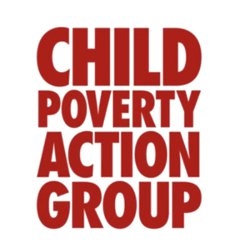
Child Poverty Action Group (CPAG) welcomes the Government’s 12 priorities for a “modern and fairer New Zealand”.
Among these, the priority for “making New Zealand the best place in the world to be a child” is evidence of the Government’s commitment to putting children’s wellbeing at the heart of all policies:
“The Government’s vision for a welfare system is one that ensures people have an adequate income and standard of living, are treated with, and can live in dignity and are able to participate meaningfully in their communities.”(Welfare Expert Advisory Group’s Terms of Reference)
If these principles guide reform they will ensure better outcomes for families and children in vulnerable situations.
“But the scale of the problem must not be underestimated,” says Associate Professor Susan St John, CPAG economics spokesperson.
Aotearoa desperately needs a new and better approach for supporting parents who are doing it tough while performing the vital role raising children.
There is much work to be done so that all children may enjoy the full benefit of living in our prosperous country. We know at least 140,000 children live in families under the lowest poverty line (40% of the median (equivalised) household income, after housing costs). Families can fall well below this low income line when they are on benefits alone, and be forced into debt or turn to charity to survive.
The Families Package implemented in July is a welcome improvement, but many systemic issues remain, such as the problem of benefits and tax credits that have fallen far behind the rising costs of living and housing.
CPAG has launched its new campaign Welfare Fit for Families, asking for Government to reform the welfare system so that it is better equipped to provide for the unique needs of all families and individuals when they may need social assistance, so they can continue to thrive.
The campaign promotes 17 concrete and practical recommendations to aid in achieving the Government’s vision, set out in a downloadable document and available now online.
“The Welfare Fit for Families campaign recommends that benefit levels are significantly improved and the full package of Working for Families tax credits given to all low-income families,” says St John.
“For welfare beneficiaries to be able to live with dignity and to be able to participate in society also requires linking all social assistance payments to wages as well as prices.”
The recommendations also include:
– Removing sanctions on sole parent beneficiaries;
– Removing the financial penalty for beneficiaries who are in a relationship;
– Improving access to child support for parents who receive a benefit; and
– Providing beneficiaries the opportunity to retain more of their benefit income when working part-time or when entering a new relationship.
If implemented, these 17 recommendations would help steer New Zealand confidently into a future where all our children have the chance to thrive.
For more information, visit CPAG’s website.





As usual absolutely no mention of the substantial increase needed in the disability allowance for people with long term illnesses.
The concentration on families alone and the leaving out of single people or couples alone that have serious long term illnesses is damn wrong.
What about if their children have long term illnesses and need unfunded meds.
It is time you people took a damn hard look at my underfunding of medicines group on facebook.
Nobody seems to give a damn about people with long term illnesses who are on unfunded meds and the distress and mental harm it does to them and their partners and or family members.
It’s a Child Poverty Action Group thing.
Yes but the disability allowance applies to children as well.
What about families that have Parents who are on unfunded meds ?
No one is discussing the whole situation re welfare funding for children or adults with long term illness that Winz refuses to do a damn thing for.
That is the point I am trying to make.
It is a waste of time reviewing welfare for families if you only look at half the picture and put your head in the sand and ignore the other half.
Comments are closed.